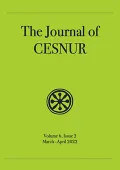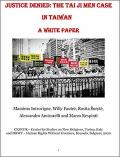One Step Forward and Two Steps Back: The Road to Serfdom and the Tai Ji Men Case
This paper was presented at the webinar “After the August 2 Taichung Decision on the Tai Ji Men Case: Can the Law Become a Tool of Violence?” co-organized by CESNUR and Human Rights Without Frontiers on August 22, 2024, United Nations International Day Commemorating the Victims of Acts of Violence Based on Religion or Belief.















